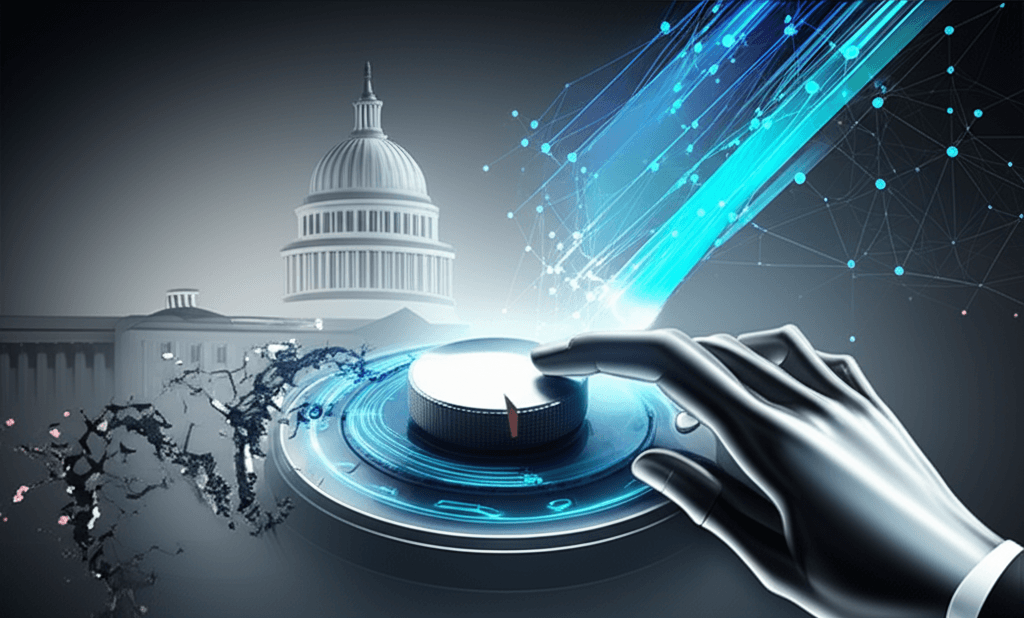Tech Leaders Fund $100M PAC to Write America's AI Rulebook
A $100M tech coalition aims to guide AI legislation, seeking innovation-friendly rules amidst grave safety concerns.
August 25, 2025

A coalition of high-profile tech investors and artificial intelligence firms is launching a formidable political action network named "Leading the Future," backed by an initial war chest of over $100 million, to aggressively shape the future of AI legislation in the United States.[1][2][3][4][5][6][7] This bipartisan initiative marks a significant escalation in Silicon Valley's efforts to influence Washington, signaling a proactive and well-funded campaign to ensure that government regulation aligns with the industry's vision for innovation and growth.[3][4] The network aims to support candidates who champion a tech-friendly agenda and counter those pushing for stricter controls on the burgeoning technology.[2][5] Supporters of the initiative include venture capital giant Andreessen Horowitz, OpenAI President Greg Brockman and his wife Anna Brockman, AI search engine Perplexity, and veteran investor Ron Conway.[1][3][4]
The formation of "Leading the Future" comes amid a dramatic surge in AI-related lobbying efforts. The number of organizations attempting to influence the federal government on artificial intelligence nearly tripled from 158 in 2022 to over 450 in 2023, a clear indicator of the technology's growing importance in the national discourse.[8] This lobbying frenzy has been dominated by large technology companies who, while publicly expressing support for some form of regulation, often advocate for voluntary, light-touch rules in private discussions with policymakers.[9] "Leading the Future" intends to formalize and amplify this pro-innovation stance, using its substantial funding for campaign donations and digital outreach to create a political environment favorable to rapid AI development.[1][2][5] The group's leaders, veteran political strategists Josh Vlasto and Zac Moffatt, have stated their goal is not complete deregulation but the establishment of "sensible boundaries," arguing against a "patchwork of regulation" that they believe could slow down AI deployment and hinder American innovation.[2]
The central argument put forth by "Leading the Future" and its allies is that overly stringent or premature regulations could stifle innovation, create significant economic burdens for businesses, especially startups, and ultimately cede the United States' competitive edge in the global AI race, particularly to China.[10][11] Proponents of this view warn that a complex web of rules could become quickly outdated given the rapid pace of technological advancement and create barriers to entry that entrench the power of incumbent companies.[1][10] The U.S. Chamber of Commerce has echoed these sentiments, advocating for a technology-neutral, risk-based approach to regulation and even supporting a proposed 10-year moratorium on state-level AI laws to allow for a consistent national framework.[12][13][14][15] The concern is that a fragmented policy landscape would create massive compliance costs, disproportionately affecting small businesses and diverting resources from investment and hiring into legal and lobbying efforts.[16][15] The network plans to begin its operations in key states like New York, California, Illinois, and Ohio, which are seen as pivotal battlegrounds for shaping future AI policy.[3][4]
However, this push for industry-friendly regulation is met with significant concern from a diverse array of civil society organizations, academics, and ethicists who warn of the profound risks unchecked AI development could pose.[9] These groups are actively lobbying for robust safeguards to protect against the potential negative consequences of the technology.[8][9] The NAACP, for instance, has been a vocal advocate for AI regulations that address the risk of algorithmic bias, which can perpetuate and even amplify historical discrimination in critical areas such as criminal justice, housing, and employment.[17][11] The organization is pushing for legislation that mandates the use of diverse data sets to mitigate bias and for strict oversight of AI in decision-making processes that could impact civil rights.[17] Concerns are not limited to bias; experts warn of a range of catastrophic risks, including the malicious use of AI to design bioweapons or execute advanced cyberattacks, the potential for autonomous weapons systems to escalate conflicts, and the societal disruption of mass job displacement.[18][17][19]
In conclusion, the launch of the "Leading the Future" political network represents a pivotal moment in the debate over artificial intelligence governance. With more than $100 million at its disposal, the coalition of tech leaders is poised to become a powerful force in Washington, advocating for a regulatory environment that prioritizes innovation and American competitiveness.[3][4] This initiative crystallizes the tension between the tech industry's desire for rapid advancement and the growing calls from civil rights groups and safety advocates for cautious, comprehensive regulation to mitigate the potential for profound societal harm.[17][9] As AI continues its rapid integration into every facet of life, the battle to define the rules that will govern its future is set to intensify, with the well-funded efforts of "Leading the Future" ensuring that the voice of Silicon Valley will be heard loud and clear in the halls of power.
Sources
[3]
[5]
[6]
[7]
[8]
[11]
[12]
[13]
[14]
[15]
[16]
[17]
[18]
[19]